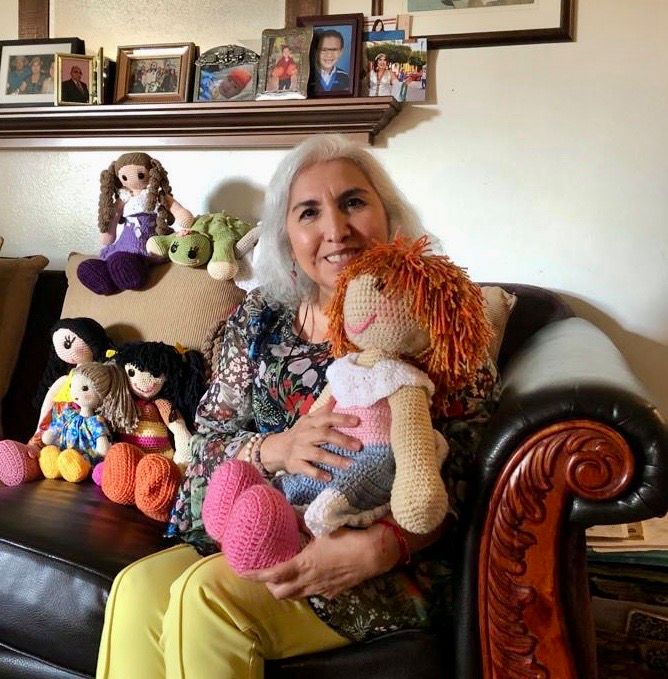Helps you stay busy and relaxed during pandemic-ordered isolation
The teacher Rosa Higuera learned to knit when she was a child in Mexico. Upon emigrating to California, he began to make knitted dolls, but when the coronavirus quarantine was imposed, he made it a point to make one doll per week to keep himself busy and not allow himself to be overcome by worry and uncertainty.
She has been wearing eight dolls since the marzo Stay at Home ’order was issued in March.
“They are a hobby and therapy. When I start knitting I turn off the television because I need to concentrate; and I forget what happens outside, "he says.
He was born in Mocorito, Sinaloa. She worked her entire life as a primary school teacher in Mexico. For many years, she spent traveling between the city of Anaheim and Mocorito, because her husband and father of their three children worked in California.
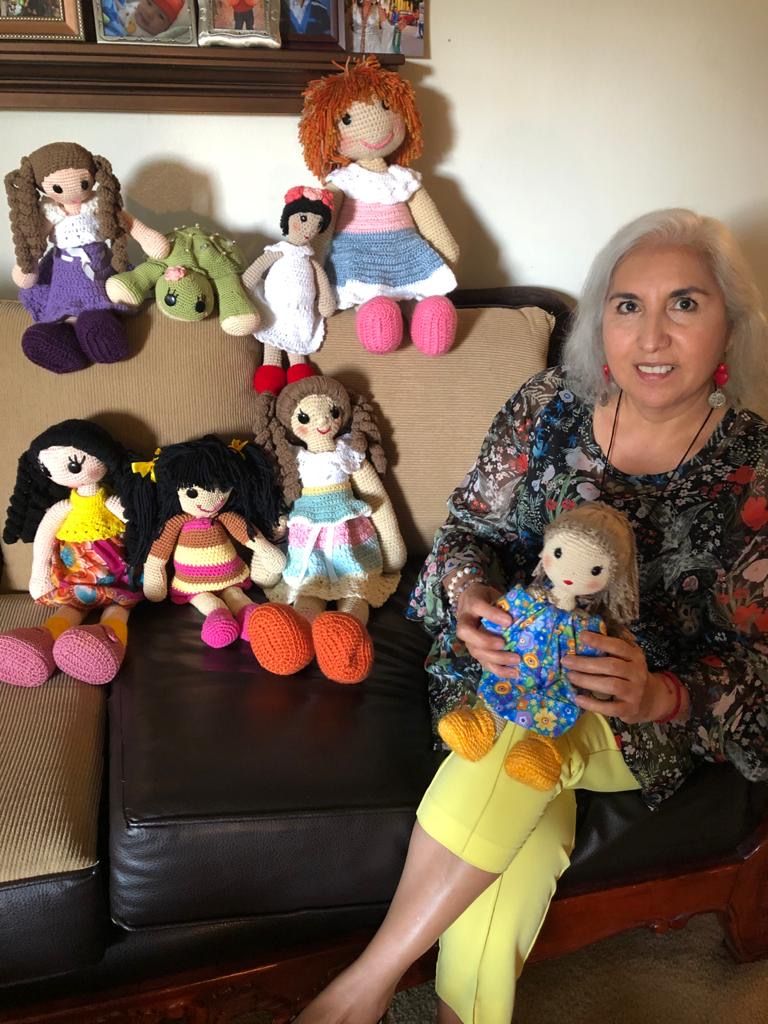
Upon retiring from teaching in Mexico, he came to live in the city of Anaheim in Orange County.
Actually, His passion for weaving began at an early age.
“Before, in primary schools in Mexico, they taught you how to knit and sew in fourth grade. We even had to make a sample book with the different stitches ”, he recalls.
When he grew up, a brother and sister-in-law opened the La Casita del Estambre business in Culiacán, Mexico; and it was in the textile workshops that they taught there, that he learned to knit different garments.

Already established in Anaheim, she volunteered at her children's schools, and participated in the countrymen's clubs, but she also returned to knitting and began making her first dolls.
"When I start, I already have an idea of the type of doll I want to make, but I am defining it as I am stitching, pure imagination"
But each doll is unique. "They have something creative because I do them without a guide, just with my head."
She weaves them with crochet hooks with yarn and yarn “The yarn is easier to knit and cheaper. The thread is thinner and more expensive. "
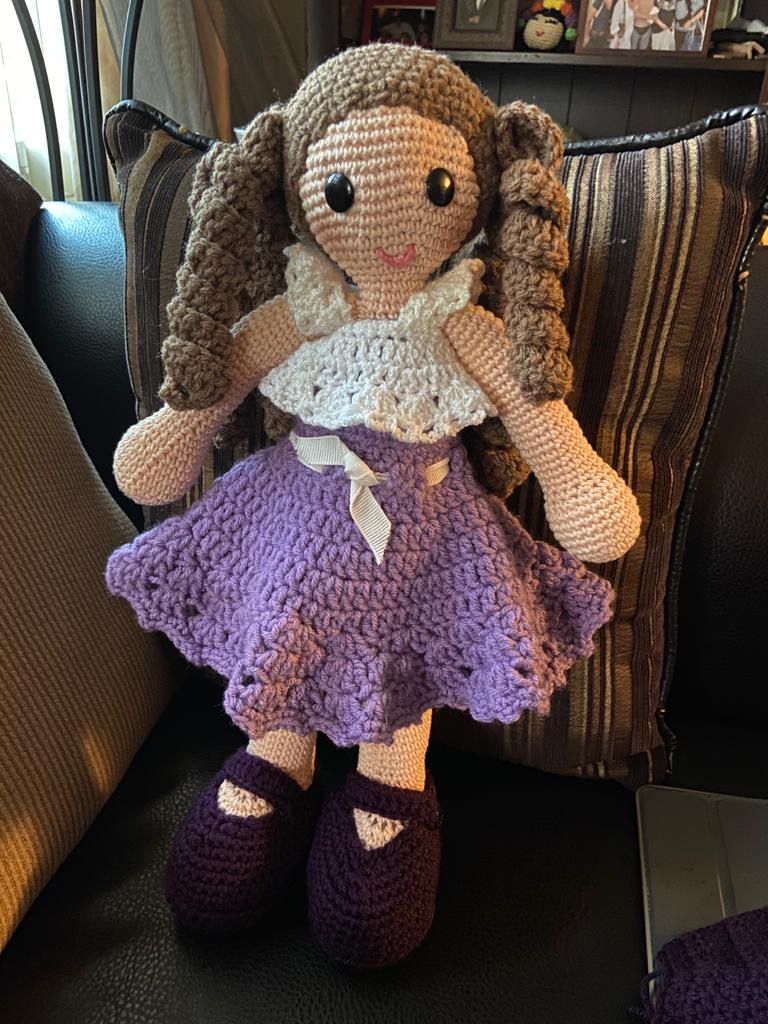
For the teacher Rosa her dolls are very special. "People are amazed when they see them. They are a part of me. I love them. I do not make them to sell. I have given some away, but never sell them. I would not know how much to give them, because they also have a large cost in labor; and in each one, a part of my heart goes away ”.

So when the quarantine began, he set out to make one doll per week. "I thought it would only be two weeks of confinement, but the eight weeks are over. And I already have eight dolls", He says.
On each doll, the teacher Rosa puts not only her hands to work but also her brain. “For each point I have to move my hand four times. Knitting has a lot of math and engineering. But it is also like the work of a sculptor, you are constantly reducing and enlarging. You capture what you want to see and how far your creativity reaches ”.
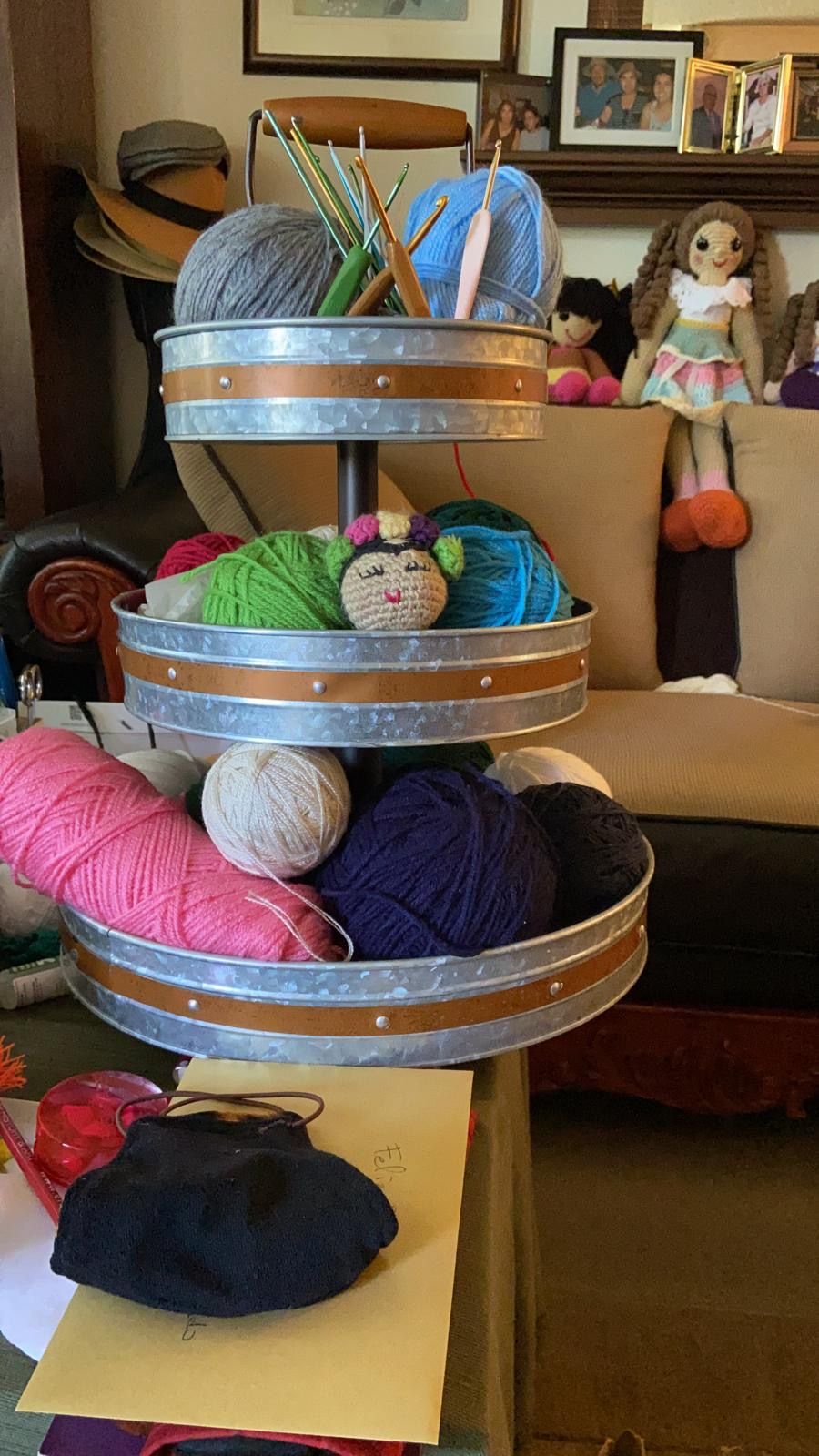
This Sinaloan immigrant has made all kinds of dolls, blondes, with black hair; well combed, with wild hair; very formal and others very casual.
“During the quarantine I wanted to do a blonde, but I didn't have any yarns to tone the hair color. I also couldn't go to the store because everything is closed. So I grabbed the lighter colors I had, and it came out as a redhead, "she says.
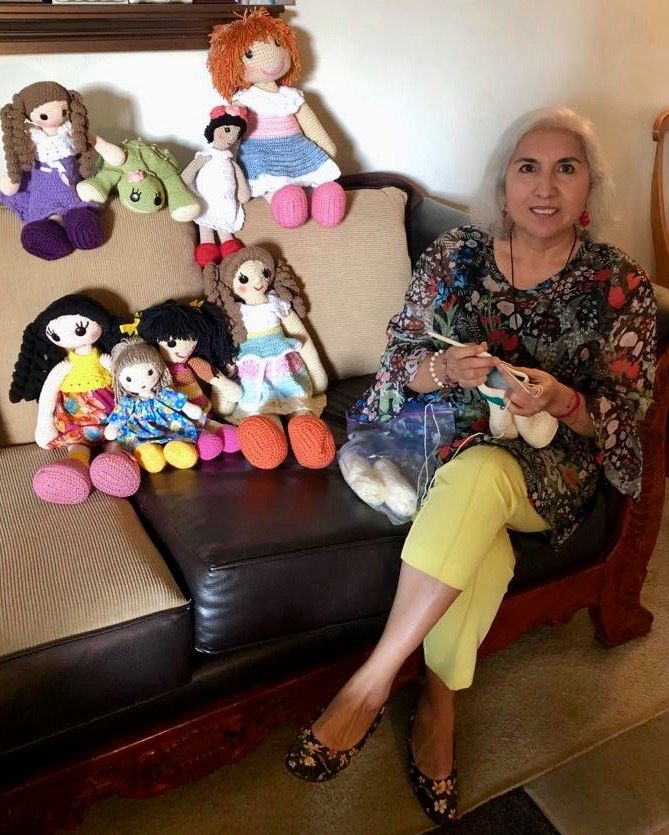
The teacher Rosa has made hundreds of dolls, but she also weaves everything that comes to her mind, clothes, balls and different figures. "I even knitted a collection of monkeys for my grandson." And she has also woven many miniature dolls under the Japanese weaving technique, amigurumi.
However, the dolls of the quarantine have a very significant value for her, because they have not only helped her to cope with the fear of COVID-19 but have also given her much happiness.
“I play and talk to them. I am very happy to show them to my family when I finish them; and doing them is a passion, to the degree that I do not feel the hours, and when I realize it it is already 12 at night ”.
Although the teacher Rosa, the dolls have helped her relax during the quarantine, her greatest wish is that it is over. "Hopefully it won't get longer!" He exclaims.

